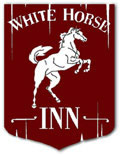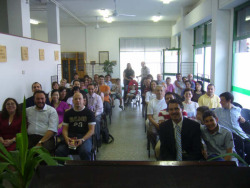"The Cause and the Effect"
 Tuesday, February 2, 2010 at 05:31PM
Tuesday, February 2, 2010 at 05:31PM 
Q. What is sanctification?
A. Sanctification is the work of God’s free grace, whereby we are renewed in the whole man after the image of God, and are enabled more and more to die unto sin, and live unto righteousness.
(Westminster Shorter Catechism, Q&A 35)
Several times I have heard Christians recite the following formula: “Christians are saved by grace, justified by faith, and sanctified by works.” On first hearing, this sounds right as the slogan attempts to capture three important biblical emphases. Yes, we are saved by grace and not by our works (Rom. 6:14; Eph. 2:8). Yes, the ground of our justification is the merit of Christ, which becomes ours through faith alone (Rom. 3:28; Gal. 2:16). And yes, good works will be found in the lives of those who are saved by grace and justified by faith (Eph. 2:10). But — and here is where the slogan takes us in the wrong direction — we are not sanctified by our good works.
This is a very important point and is often misunderstood by many. The reason why the last part of the above formula is incorrect (“sanctified by works”) is because when discussing sanctification, the formula confuses the cause (God’s grace) with the effect (good works). To put it another way, while the process of sanctification inevitably leads to the production of good works, good works do not produce our sanctification.
To read the rest of this article, click here











